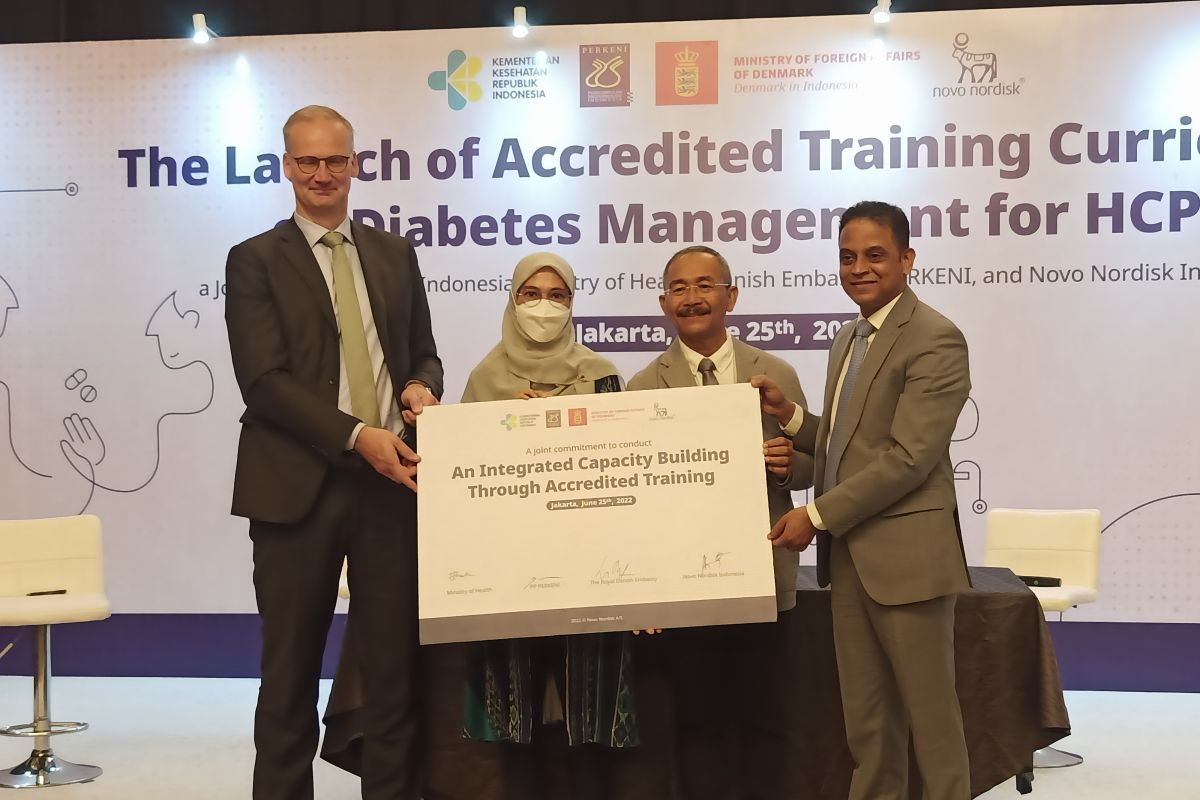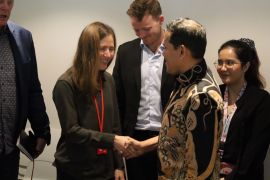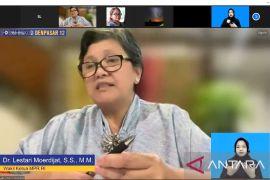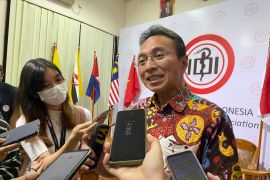In Indonesia, diabetes is one of the major health problems as it causes a high rate of morbidity and mortality. The prevalence of the disease continues to rise as there are many undiagnosed or underdiagnosed cases. According to the Basic Health Survey (Riskesdas) in 2018, the prevalence of diabetes had increased to 10,9 percent. The International Diabetes Federation (IDF) also mentioned that the number of people with diabetes in Indonesia continues to rise, from 10.7 million in 2019 to 19.5 million in 2021. It takes us to fifth place in the world, up from seventh place previously in 2019. The number is projected to increase to 643 million by 2030 and 784 million by 2045 if no action is taken.
Indonesia Deputy Health Minister Dr. dr. Dante Saksono Harbuwono, Sp.PD, KEMD said that the increasing number of diabetes patients can be avoided by conducting good promotive and preventive efforts in the primary healthcare facilities, adding that the Ministry is currently running a variety of transformative efforts and expanding early detection programs in the primary healthcare facility.
“We will conduct a blood sugar level and HbA1c screenings in primary healthcare facilities. We are hoping to reach the 100 percent target by 2024,” he said.
He also mentioned that improving the healthcare professional’s capability is part of the Ministry of Health’s strategies to prevent diabetes.
“I really appreciate the bilateral cooperation with the Danish Government, as well as Novo Nordisk Indonesia that has collaborated with the Directorate of Primary Health Services (PKP), the Directorate of Prevention and Control of Non-Communicable Diseases (NCD, P2PTM), and the Directorate of Health Workers Capability Improvement in the preparation of comprehensive training modules for general-practitioners in first-level health facilities (FKTP),” he said.
Danish Ambassador to Indonesia H.E. Lars Bo Larsen said, “We strongly support the Indonesia government as stated in our government-to-government memorandum of understanding (G2G MoU) on health cooperation between Indonesia and Denmark. The agreement which was started last year will support the effort to strengthen Indonesia’s public health governance in diabetes care which will eventually lowering the numbers of complications.”
Complications of diabetes mellitus, especially in the blood vessels and nervous system, will cause increased morbidity and mortality rates, and it can decrease the patient’s productivity, and indirectly impact their financial status.
“Approximately, 74 percent spending on diabetes was to treat complication related with diabetes, not in medicine. To ensure that people with diabetes reach their glycemic targets and avoid diabetes complications, we need contributions from all levels of healthcare facilities,” explained Non-Communicable Disease (Act.) Director of Indonesia Ministry of Health dr. Elvieda Sariwati, M.Epid.
With that in mind, it is important to provide an accredited diabetes management training program with a standardized curriculum. The training, provided by an accredited institution, will produce more healthcare professionals who are standardized in their ability to diagnose and manage diabetes.
“I launched the curriculum for the management of type-2 diabetes mellitus as a national standard curriculum. Thus, it can be used by all training institutions to increase the competence of the health workforce, especially for general practitioners managing diabetes mellitus in primary care centers,” said Director General of Health Workers for Indonesia Ministry of Health drg. Arianti Anaya, MKM.
Meanwhile, Head of PP PERKENI Prof. Dr. dr. Ketut Suastika, Sp.PD, KEMD, FINASIM, said, “Based on the National Guidelines for Medical Administration Services for Type-2 Diabetes Mellitus (PNPK Tata Laksana Diabetes Melitus Tipe 2 Dewasa), to manage people with diabetes without complications, general practitioners serve as gatekeepers. When people with diabetes develop complications, their cases are treated by the internists in secondary care. If the complication become more serious and complex, then it must be handled by an endocrinologist. It is critical to manage diabetes based on HCP capacity and capability. We need to implement an integrated and coherent capacity building program through Accredited training to improve their capacity and capability.”
The International Diabetes Federation (IDF) has shared a recommendation in 2021 to conduct capacity building for general practitioners in Puskesmas and strengthening their authority to conduct insulin therapy and carry out comprehensive diabetes care to support patients in controlling blood sugar level and preventing complications.
The training will be integrated into all levels of healthcare facilities. Endocrinologists in tertiary care facilities will participate in a training-of-trainers (ToT) program to prepare them to train internists. The internists at the secondary level will also receive a ToT program to train primary-level general practitioners.
This module and training are implementations of the G2G MoU on health cooperation between Indonesia and Denmark that mentioned earlier. “We are excited that the module and training will be implemented to strengthen the Indonesia public health governance and provide vulnerable patients with access to affordable diabetes care,” said Lars Bo Larsen.
Increasing and strengthening healthcare practitioner’s competency supports the National Healthcare Transformation Strategy 2021-2024, especially the Primary Services Transformation pillars, which are: 1) Educating citizen, 2) Primary prevention, 3) Secondary prevention, and 4) Increasing primary services’ capacity and capability.
“Our purpose globally is to drive change in diabetes. Therefore, Novo Nordisk Indonesia is committed to improving diabetes care in Indonesia. We are partnering closely with the Indonesia Ministry of Health, the Danish Embassy, and PERKENI to increase awareness and education and to bring access and better care closer to patients. Training for healthcare personnel is an essential element of our commitment, which will be accelerated by this collaboration. With this joint commitment and collaboration, we will ultimately improve the lives of people with diabetes,” said Vice President & General Manager for Novo Nordisk Indonesia Anand Shetty.
Reporter: PR Wire
Editor: PR Wire
Copyright © ANTARA 2022










